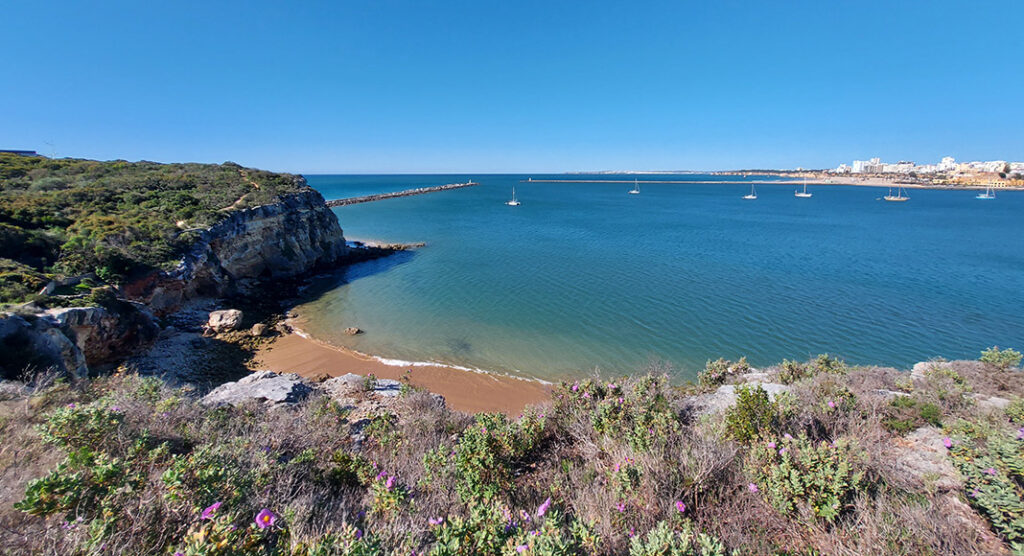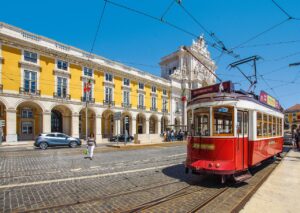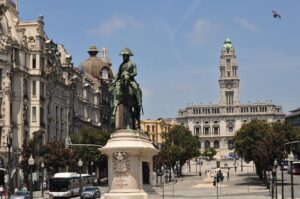The article written by Roger Eastoe in the Algarve Resident edition of March 11 continues to attract widespread interest. Here we publish another selection of readers’ letters received over the past few days.
—-
I am writing to you regarding the article “EU treatment of non-resident UK homeowners in Portugal” as a number of facts within it are incorrect.
The author states that a UK national having residency in Portugal entitles freedom of movement in the Schengen Area. This is simply not true. Portuguese residency allows a UK national to come and go as they please to Portugal. As long as they spend more than six months out of 12 in Portugal, they then do not lose their residency status.
As far as travelling in the rest of the Schengen Area is concerned, those UK nationals are now as restricted as any other. Even with Portuguese residency, UK nationals are only allowed 90 days out of a 180 in the rest of the Schengen Area and, as you can imagine, this has had devastating effects on cross border workers and those with international businesses/employment which are many.
The figures given by the author of numbers of UK nationals in Portugal also appear to be incorrect. The estimated figure is between 55,000-60,000 UK nationals residing here with a large amount of those unregistered. It has been an ongoing battle to convince those unregistered UK nationals to obtain residency so as their rights under the Withdrawal Agreement are protected.
The author gives reasons as to why UK nationals do not wish to become Portuguese residents as being, they do not wish to file tax returns or exchange their driving licences. If I may translate this: they have been living in Portugal for longer than three months illegally, without residency, so they can commit the offence of tax evasion.
There are still thousands of UK nationals in Portugal who are homeowners who refuse to obtain residency for this reason. Without residency, they then cannot exchange their driving licence for a Portuguese one. Once the full implications of UK nationals being third country nationals hits then, after 90 days of being as such in Portugal, either the driving licence is exchanged or a Portuguese driving test has to be taken. A Portuguese driving licence can be driven on in the UK but, as a Portuguese resident, it is much harder to obtain car insurance for a vehicle in the UK.
As regards the author wishing the Portuguese government to be lenient on UK nationals who own homes in Portugal but refuse to become Portuguese residents? The 90-day rule is what was voted for when the 2016 Brexit referendum took place. UK nationals are no different to other nationalities who are not EU citizens and have to abide by those rules.
UK nationals are not an exception, they are not a ’special case’ and, according to every person who voted for Brexit I have met, they stated they knew. British exceptionalism has no place in Portugal or the EU because, after all, this is what the UK voted for.
It truly is time a large number of UK nationals and property owners in Portugal understood this.
Tig James
Co-President, British in Portugal
Article author Roger Eastoe replies to Tig James:
Confusion reigns but read on … I was sent Tig James’s letter when it was published on the Facebook page ‘British in Portugal’ of which I understand Ms. James is the Co-President.
The article referred to me as ‘advocating British exceptionalism’ which I am certainly not doing. Sadly, Ms James did not observe balanced opinion or the rule of good journalism e.g. putting both sides of the debate on Facebook. She chose not to publish my article as it appeared in the Resident back on March 11.
To say confusion has reigned in respect of the interpretation of the EU/UK withdrawal agreement is the understatement of all time. It’s been a moveable feast until the document was finally agreed and published in January of this year.
Many reports I have read in the lead up to the withdrawal agreement published in learned journals and websites have been conflicting as opinions changed. In February 2019, the Portuguese Chamber of Commerce in the UK stated “UK citizens resident in Portugal will still be allowed to travel throughout the EU using their Portuguese residency. They will be travelling as Portuguese residents and not as UK passport holders and, therefore, free movement within the EU will continue”.
This is one example of information that was being given. There are others and confusion has reigned amongst journalists and the public. I am grateful to Ms James in the first paragraph of her letter correcting me on the incorrect interpretation of UK nationals who have residency and their ability to move freely through the Schengen zone.
In respect of the query raised by Ms James about the stats I quoted for UK nationals in Portugal, Ms James states “it appears” those figures were wrong. They are, in fact, figures taken from the British Embassy and the Portuguese SEF, the borders agency. I have no reason to doubt them, and the figures Ms James quotes are just that, with no source provided – just estimates!
Ms James then goes on to put an unnecessary spin on this matter and suggests the non-residents I was speaking about, including myself, are acting illegally. We are accused of tax evasion. That’s a very strong and incorrect observation. It’s wide of the mark and is offensive to the majority who, like me, pay our taxes and are genuinely concerned and would like to gain a longer duration of stay in our homes in Portugal.
If the Portuguese government agrees for the reasons I identified in my article (e.g. inward investment in Portugal for no claim on the state) that there is a way to achieve this through another form of visa or an amendment to the EU directive in time ahead, other EU countries may also be inclined to opt for this when the dust has settled.
Whether there are thousands of UK nationals living in Portugal outside of the law is not known to me.
Since I wrote the article, as the editor can confirm, there has been majority support for the case I put forward and these have been from reasoned individuals. Interestingly, letters have been received from the USA and Canadian citizens who have invested in Portugal and would also like to be granted preference of days over the normal tourist terms.
I voted to remain in the EU and publicly declared that at a charity function I used to run for the Refúgio Aboim Ascensão for 14 years where, as a committed friend of Portugal, I helped raise, with Sir Bobby Robson, over a million euros for the charity.
I am not arguing for British exceptionalism, I am arguing that Portugal, as our oldest ally, has many Brits who are great friends and, as investors in the country for many years, would like to stay longer at their homes in Portugal to the benefit of the country – harming no-one.
I also like to think the Portuguese government would consider making any extended days stay terms eligible to all citizens from third countries who are inward investors/homeowners.
To Ms James, I suggest she thinks again and becomes less blinkered in her views.
Roger Eastoe
Editor’s note: Reader Tig James also sent her comments by email directly to the Resident.
——–
I am staggered at the attitude adopted by the writer of this opinion piece. I am not a Portuguese resident. I am also not a UK citizen or resident. I do, however, own a property in the UK. Under UK law, I am only able to spend either 90 or 120 days per year without becoming a tax resident.
Using these arguments, the writer is saying that I should claim some sort of exemption from UK rules and expect different treatment to tourists, regardless of where I am from, simply because I own a property there.
The writer is saying I should use arguments such as “I am contributing to the UK economy”, “I am a real friend of the UK”, “I pay property taxes and employ UK people” or “I make a meaningful contribution financially to UK society but am no financial burden on the UK state”.
I would be laughed out of the room if I adopted such an argument with UK authorities. Portugal should not react any differently.
Daniel Maurer
—–
I am in a similar position. I have had a boat in Portugal for four years bought from new and paid 23% vat on it.
My understanding of the 90/180 is the other way. EU citizens can stay in UK for 180 days at a time.
The 90/180 rule will really impact me. Last year I spent four months working remotely on my boat.
We have many friends visiting from the UK who stay in hotels, eat out, etc, and we pay mooring fees, cleaners, skippers and virtually live in the restaurants. Plus, all the boat maintenance. All of this contributes to the Portuguese economy.
Hopefully this year, Covid permitting, I would want to do it again, but my trip will be cut short because of the 90/180 rule and I will have to leave early and go elsewhere (which I am desperate not to do).
Portugal is a fantastic country with amazing people. I have friends there who are like family.
It’s really sad I won’t be able to stay longer.
James
—–
I could not agree more with the above referenced article and would raise one other issue that may affect the Portuguese economy going forward and may be worthy of consideration.
As most are aware, the tax treatment of one’s principal residence enjoys exemption from CGT in the UK.
This in effect was and is the same for Portuguese residents where roll over relief is allowed for re-investment. Amongst other EU nationals, Brits were allowed, if they so desired, to roll over that relief into the purchase of a UK property.
In my experience, many Brits retire to Portugal with the intention at some point of returning to their roots in the latter stages of their life. It seems to me that this is tacitly acknowledged by the 10-year NHR arrangements.
Meanwhile, of course, all of the benefits that this brings to the Portuguese economy and people accrue as mentioned in the above article. However, once Brits realise that any property purchased here as part of their overall retirement plan will be subject to full CGT, should they eventually decide to return ‘home’, it will become another negative factor in their deliberations and, in many cases, I would suggest it will be a deal breaker.
Bill
—–
Having just read Robert Eastoe’s article concerning the 90/180 rule stay for UK non-residents, I would like to add that for the last 21 years we too have owned a home in the Algarve and would support all of Robert’s pertinent succinct comments on the EU treatment of non-resident UK homeowners in Portugal.
We are not tourists, we have chosen to invest in a property in Portugal, we pay local taxes adding to the Portuguese economy in many ways, e.g we employ staff to look after our house, gardeners, cleaners, maintenance people, to name but a few. We cost Portugal nothing in healthcare … we are not even a financial burden to the economy.
Last year, we decided to retire early and had intended spending more time in our Portuguese home. Sadly, this will not now be the case because of this rule.
A petition was signed in the UK recently and debated in Parliament. Sadly the reply received was “this was included within the Brexit Withdrawal Agreement”. My reply to this is, “Portugal stand up to the EU” and for you to change this hideous rule. Surely, the Portuguese government is allowed to use its own discretion on how long homeowners are allowed to stay in its own country.
Come on Portugal, stand up for us non-resident homeowners who give your country so much – yet take nothing.
What I think is important and I should have added, to get over this rule, that Portugal provides an exemption certificate/or an equivalent for people who own homes and have chosen to be non-residents. This could be similar to the fiscal card that we have. Proof of ownership shouldn’t be a problem as we pay IMI taxes and our fiscal numbers are stated on this bill. We also have a Portuguese bank account.
As non-resident owners we pay taxes tourists do not.
Name withheld
——-
I am writing to support your article regarding the restriction imposed on the UK non-residents in Portugal as 12 years ago I purchased a house in the Alentejo region for the sum of €500,000, and I renovated the house at a further cost of €350,000 and now it is registered with Airbnb and has been very successful attracting people from all over the world.
The taxes are deducted automatically and we pay the highest electricity charge in Europe. We have a maid employed, a gardener, a local mechanic doing all the work in our cars and we also export some wine and we have never received any support from the government. In the past, they were offering tax incentives, but they were very quick to change their minds and change the tax rules .
The reality is that we contribute about €50,000 pa and that’s our fair share to Portugal and we have some friends who own properties in the same area and also contribute a lot to the Portuguese economy. So, I feel it is very unfair on us to be limited to such a short period there.
Patrick Hughes
——
Typical whinging Brits. They voted for Brexit and now they are complaining that they no longer receive special treatment. Have they considered the treatment of Portuguese non-residents in a similar position in the UK?
George, Sagres (British resident)







